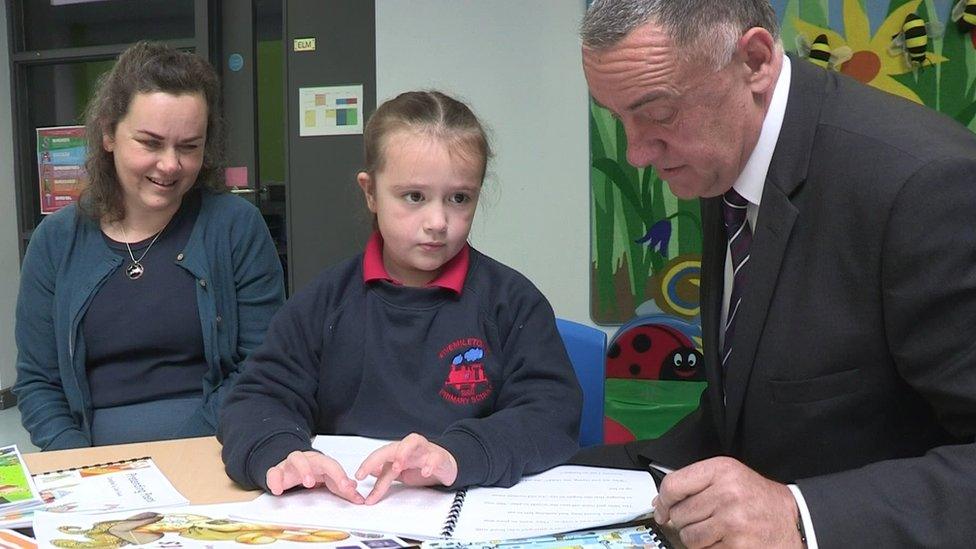World Braille Day: County Tyrone girl 'able to read like classmates'
- Published
Eryn Kirkpatrick said that braille gives her the independence to read on her own
This year marks the 200th anniversary of the invention of Braille but to people like Eryn Kirkpatrick it is much more than just dots on a page.
For the 12-year-old from County Tyrone, the system is the key to her independence.
Eryn, who began learning Braille aged just five, says it allows her to learn just like her peers.
For all of this, she has a 15-year-old French boy called Louis Braille to thank.
"I love reading and writing with Braille," said Eryn. "I also love learning about all the new technology that is out there now but still enjoy reading story books in Braille sometimes.
"It's important to me that I'm able to read the same books and do my schoolwork as well as everyone else my age - Braille helps me to do that."
Despite there being alternatives such as audio books, Eryn says she still prefers to use Braille.
"It gives me the independence, it tells me the story through words instead of through somebody else reading it to me ."

What is Braille?
Thursday marks the anniversary of the birth of the inventor of Braille, Louis Braille.
The French man became blind aged four.
In 1824, aged 15, he developed Braille.
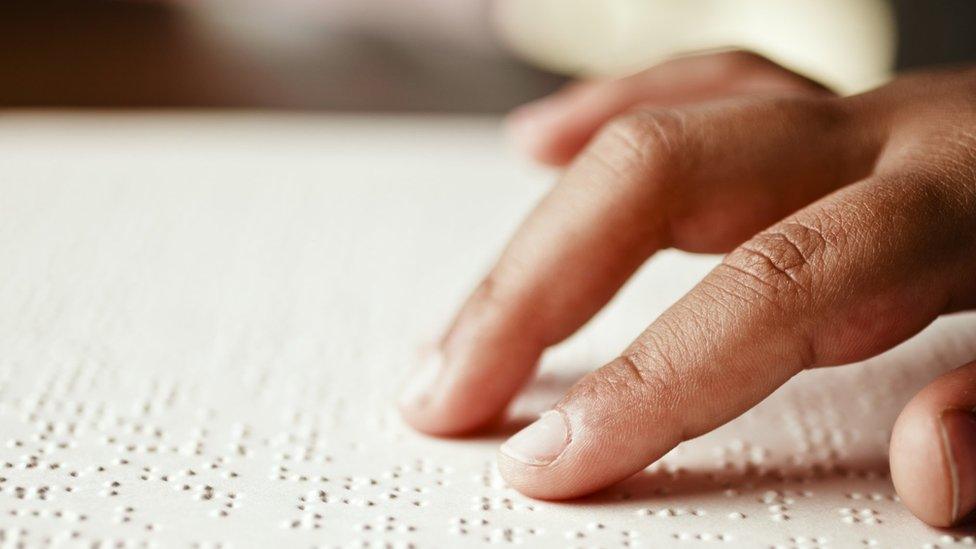
The system is based on variations of six dots, arranged in two columns of three.
Variations of the six dots represent the letters of the alphabet, punctuation, numbers and groups of letters.

'We were worried about the future'
Eryn's mum, Evanna, said that since her daughter's birth she has "learnt to trust that she'll find her own way in life".
"As parents, when Eryn was very young, we were worried about the future and how she would manage at school or growing up but she continues to amaze us with the way she approaches every problem that's thrown at her," she said.
"We knew that she was blind but we didn't really know what that would mean for her growing up. Would she be able to read and do all those things that children do?"
She added: "I'd say to other parents: have faith in our kids. It was important to us as parents that, from a young age, Eryn got every opportunity to learn skills that would help her progress in life."
Evanna has since learned to read Braille by sight but not touch.
"Braille just means Eryn can live as normal a life as you or I or anybody else," she said.
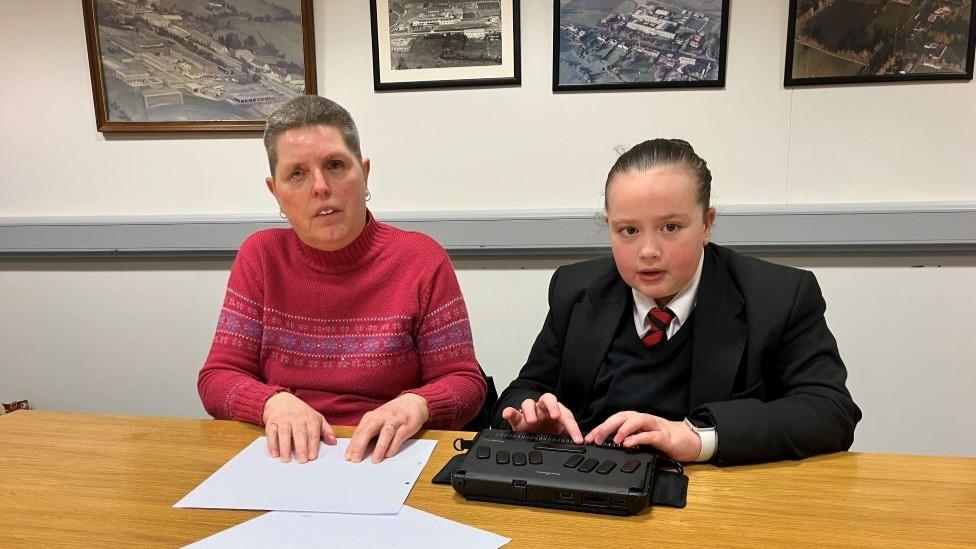
Jackie Brown from RNIB helps Eryn with Braille at school
Jackie Brown, from RNIB, who visits Eryn at school, said Braille remained crucial to people with visual impairments.
"Close your eyes and think of all the ways you use the written word in your daily life," she said.
"Those scenarios are just the same for a person who can't see - that's why Braille is still so important.
"Don't get me wrong - advances in computer technology and screen reading or magnification software can be life changing, but if you've restricted access to computers or need to read independent from other technology, Braille is still the go-to."
'I still use Braille everyday'
For Ms Brown, her love of the system started as child.
"Being totally blind, I learned Braille as my first medium to read and write. I did all my schoolwork in Braille and even now, I still use Braille each and every day.
"Growing up, I was acutely aware of how much Braille enabled me to do. I think it's still so important in order to teach kids with a vision impairment numeracy and literacy.
"It's my job to make sure that young people with a vision impairment know about the developments in technology that exist to support them in their education journey so they can grow up strong, confident, people who choose their own path in life, go to university, flourish in their chosen careers, or whatever it is they wish to do."
- Published4 January 2023
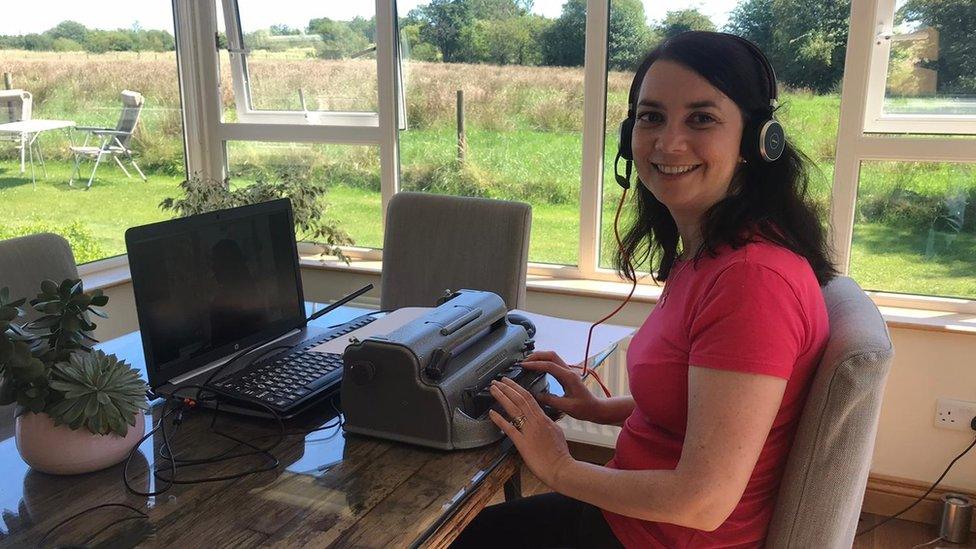
- Published18 October 2023
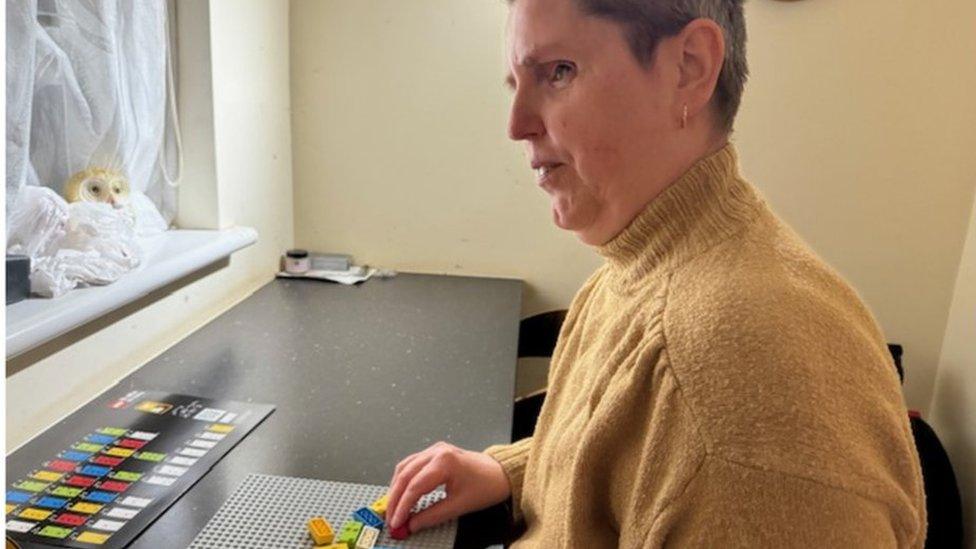
- Published15 October 2019
